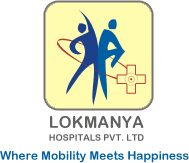The center of neurosurgery at Lokmanya Hospital provides an array of specialized secondary and tertiary neurological consultative services. Department of Neuro-surgery is equipped with state of the art equipment and designed to provide the highest levels of professional expertise and leadership in all major disciplines of neurosciences through an integrated team of neurologists and neurosurgeons dedicated to provide total patient care. The latest evidence based clinical practices at Lokmanya Hospital are backed up by state of the art technology. It boasts of a team of highly qualified Neuro-physician,Neuro-surgeons,physician,Psychiatric,Psychologist,Occupational Therapist,Physiotherapist takes care of all cases focusing on quality care of the critically injured and victims of Road Trauma,Brain injury,Spine injury,Tumors including complicated cases of skull base tumors and all neurovascular cases.
- Neurology: Routine outdoor, indoor and emergency services are available with a well equipped Neurointensive care unit.Speciality clinics are set up for Movement Disorders, Headache, Epilepsy, and Neuromuscular diseases, Neuropsychiatry, Paediatric Neurology, Pain Clinic and Neuro-rehabilitation
- Neurosurgery: Department provides Neurosurgical services along with Intensive Care facilities for critically injured and ill patients. Surgeries for Aneurysms, Brain tumors, Spinal Surgeries, Stereotactic surgery and surgery for movement disorder are performed.
- Clinical Neurophysiology: To carry out Electroencephalography (EEG), Video telemetry, Electromyography (EMG) including single fiber EMG, visual, auditory, stomata sensory evoked potential recording (Eps), Electroretinography and sleep studies.
Clinics
Stroke:
Comprehensive stroke care is given by a competent team of Neurologist, Neurosurgeon, Interventional Radiologist and Cardiovascular Surgeon. When the stroke patient arrives, emergency imaging like CT brain or MRI diffusion study or CT angiography is done and treatment is started immediately. Recombinant tissue plasminogen activator (rtPA) is used in patients with ischemic strokes. If necessary emergency thrombectomy also can be done. Recombinant factor VII is used in patients with intracerebral hemorrhages. In these patients, subarachnoid hemorrhages with aneurysm, endovascular coiling or clipping are done.
Epilepsy:
Convulsions are the most common complaint in neurology requiring emergency treatment. The patient is given drugs to control seizures and resuscitated if they are in shock. Ventilators therapy will be started immediately. Emergency CT scanning and EEG is done to detect the cause for convulsions.
Coma:
Causes for coma vary from low blood sugar to complicated hemorrhages in the brain. It includes renal failure, liver failure, severe asthma, severe pneumonia, hyponatremia, severe hypothyroidism, meningitis, encephalitis, convulsion, brain tumour, head injury, hydrocephalus and strokes. A complete range of investigations and expert services are available to manage coma patients.
Rehabilitation:
Certain neurological disorders like stroke, brain tumour, head injury, transverse myelitis, spinal cord injury, meningoencephalitis etc. may produce disability and complete dependence in a patient. These patients are rehabilitated through appropriate physiotherapy, speech therapy or occupational therapy.
